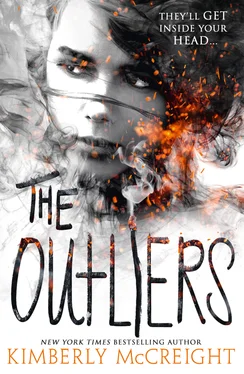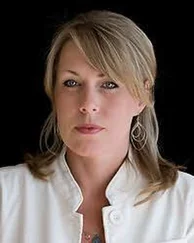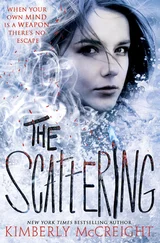First published in Great Britain by HarperCollins Children’s Books in 2016
HarperCollins Children’s Books is a division of HarperCollinsPublishers Ltd,
1 London Bridge Street
London SE1 9GF
The HarperCollins website address is: www.harpercollins.co.uk
Text © Kimberly McCreight 2016
Cover images © Rubberball/ Mike Kemp/ Getty Images (Burnt matchstick type); Shuttercock.com(all other images);
Cover design © HarperCollins Publishers 2016
Kimberly McCreight asserts the moral right to be identified as the author of the work.
A catalogue copy of this book is available from the British Library.
All rights reserved under International and Pan-American Copyright Conventions. By payment of the required fees, you have been granted the non-exclusive, non-transferable right to access and read the text of this e-book on screen. No part of this text may be reproduced, transmitted, down-loaded, decompiled, reverse engineered, or stored in or introduced into any information storage and retrieval system, in any form or by any means, whether electronic or mechanical, now known or hereinafter invented, without the express written permission of HarperCollins.
Source ISBN: 9780008115067
Ebook Edition © 2016 ISBN: 9780008115074
Version: 2016-04-01
FOR HARPER AND EMERSON,
THE BRAVEST OF THE BRAVE
K. M.
Contents
Cover
Title Page
Copyright
Dedication
Prologue
Chapter 1
Chapter 2
Chapter 3
Chapter 4
Chapter 5
Chapter 6
Chapter 7
Chapter 8
Chapter 9
Chapter 10
Chapter 11
Chapter 12
Chapter 13
Chapter 14
Chapter 15
Chapter 16
Chapter 17
Chapter 18
Chapter 19
Chapter 20
Chapter 21
Chapter 22
Chapter 23
Chapter 24
Chapter 25
Chapter 26
Chapter 27
Acknowledgments
Look Out for More
Also by Kimberly McCreight
About the Publisher
Why are the bad things always so much easier to believe? It shouldn’t be that way. But it is, every single time. You’re too sensitive and too worried, they say. You care too much about all the wrong things. One little whisper in your ear and the words tumble through your head like you’re the one who thought them first. Hear them enough and pretty soon they’re etched on the surface of your heart.
But right now, I’ve got to forget all the ways I’ve come to accept that I am broken. As I sit here in this cold, dark room, deep in the pitch-black woods, staring into this lying stranger’s beautiful eyes, I need to think the opposite about myself. I need to believe that I am a person I have never known myself to be. That in my deepest, darkest, most useless corners lies a secret. One that just might end up being the thing that saves me. That saves us.
Because there is a lot that I still don’t understand about what’s going on. So much, actually. But I do know this: despite all the fear in this woman’s eyes, we need to convince her to help us. Because our lives depend on it. And on us getting out that door.
My dad’s phone vibrates loudly, shimmying a little across our worn dining room table. He reaches forward and switches it off.
“Sorry about that.” He smiles as he runs a hand over his thick salt-and-pepper hair, pushes his square black glasses up his nose. They’re hipster glasses, but that’s not why he bought them. With my dad, any hipness is entirely accidental. “I thought it was off. It shouldn’t have even been on the table.”
It’s a rule: no phones in the dining room. It’s always been the rule, even if no one ever really listened—not my mom, not my twin brother Gideon, not me. But that was before. Things are divided up that way now: Before. After. And in the dark and terrible middle lies my mom’s accident four months ago. In the after , the no-phone rule is so much more important to my dad. Lots of little things are. Sometimes, it feels like he’s trying to rebuild our lives out of matchsticks. And I do love him for that. But loving someone isn’t the same thing as understanding them. Which is okay, I guess, because my dad doesn’t understand me either. He never really has. With my mom gone, sometimes I think no one ever will.
My dad can’t change who he is—a hard-core nerd-scientist who lives entirely in his head. Since the accident, he says, “I love you,” way more than he ever used to and is constantly patting me and Gideon on the back like we’re soldiers marching off to war. All of it is weird and awkward, though, and it just makes me feel worse. For all of us.
But he is doing his best. He’s trying to be everything my mom was. It isn’t his fault that he’s going about it all wrong. He hasn’t had a lot of practice with warm and fuzzy. My mom’s heart was always big enough for the both of them. Not that she was soft. She couldn’t have been the kind of photographer she was—all those countries, all that war—if she hadn’t been tough as hell. But for my mom, feelings existed in only one form: magnified. And this applied to her own feelings: she bawled every time she read one of my or Gideon’s homemade welcome home cards. And how she felt about everyone else’s feelings: she always seemed to know if Gideon or I were upset before we’d even stepped in the door.
It was that crazy sixth sense of hers that got my dad so interested in emotional intelligence, EI for short. He’s a research scientist and professor at the university, and one tiny part of EI is pretty much all he’s ever studied. It isn’t the kind of thing he’ll ever get rich from. But Dr. Benjamin Lang cares about science, not money.
And there is one legitimate upside to my dad being the Tin Man. He didn’t fall apart after the accident. Only once did he start to lose it—on the phone with Dr. Simons, his best friend/only friend/mentor/surrogate dad. And even then, he yanked himself back from the edge pretty fast. Still, sometimes I wonder whether I wouldn’t trade my dad totally losing it for a hug so hard I can’t breathe. For a look in his eyes that says he understands how ruined I am. Because he is, too.
“You can answer your phone,” I say. “I don’t care.”
“You might not care, but I do.” My dad takes off his glasses and rubs at his eyes in a way that makes him look so old. It tears the hole in the bottom of my stomach open a little wider. “Something has to matter, Wylie, or nothing will.”
It’s one of his favorite sayings.
I shrug. “Okay, whatever.”
“Have you thought any more about what Dr. Shepard said in your phone session today?” he asks, trying to sound casual. But he’s for sure been waiting to talk about this one thing since we sat down. Me ditching the home tutor and finishing up my junior year at Newton Regional High School is my dad’s favorite subject. If we ever aren’t talking about it, that’s because he’s biting his tongue in half trying to keep his mouth shut. “About starting back for the half days?”
My dad is afraid if I don’t go back to regular school soon, I might never. My therapist, Dr. Shepard, and he are on exactly the same page in this regard. They are perfectly aligned in most things. Probably because the two of them have been exchanging emails. I said they could after the accident. My dad was really worried about me, and I wanted to seem all cool and cooperative and extra sane. But their private chitchat has never actually been okay with me, especially not now that they’re both on team get-Wylie-back-into-regular-school. I don’t think it’s helped that Dr. Shepard and I had to switch to phone appointments three weeks ago because I can’t get myself to leave the house anymore. It kind of proves her point that me avoiding school is just the tip of a very dark iceberg.
Читать дальше













